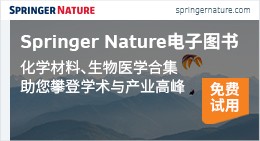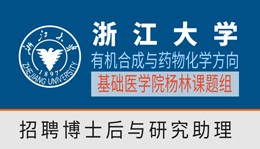当前位置:
X-MOL 学术
›
Cement Concrete Comp.
›
论文详情
Our official English website, www.x-mol.net, welcomes your feedback! (Note: you will need to create a separate account there.)
Mechanical properties of polymer modified mortars using polymer latexes with varied glass transition temperature and surface charges
Cement and Concrete Composites ( IF 10.8 ) Pub Date : 2024-05-03 , DOI: 10.1016/j.cemconcomp.2024.105573 Chaoyang Zhang , Jian Liu , Shangfeng Zhang , Xiangming Kong
Cement and Concrete Composites ( IF 10.8 ) Pub Date : 2024-05-03 , DOI: 10.1016/j.cemconcomp.2024.105573 Chaoyang Zhang , Jian Liu , Shangfeng Zhang , Xiangming Kong
Mechanical properties of polymer modified mortar (PMM) were investigated using self-synthesized polymer latexes with varied glass transition temperature (T) and colloidal surface charges to build correlations between the mechanical properties of PMMs and the intrinsic properties of the polymers. Generally, compressive strength and elastic modulus of mortar are decreased, but ductility and toughness are enhanced by incorporation of the polymers. Impacts of the lower T polymers on the mechanical properties of PMMs are more pronounced. With increasing polymer content, flexural and tensile strength of mortar first increase and then decrease when using low T polymers that form continuous film during hardening of the mortars, while steadily decrease in the case of high T polymers that exist as individual particles in the hardened PMMs. For the high T polymer modified mortars, it is interestingly found that a subsequential heat treatment effectively promotes the film formation of the polymers in the hardened PMMs and thus greatly increases their flexural and tensile strength. This indicates that polymer film formation is essential to the enhancement of the PMMs, because the polymer films play a crack-bridging effect while the individual particles cannot do such job. The high T polymers lead to higher tensile strength of PMMs after heat treatment due to the higher inherent strength of the polymer film. Higher colloidal surface charge benefits the mechanical properties of the PMMs by (1) promoting a more homogenous polymer distribution in the hardened PMMs and/or (2) improving the bonding between the polymer phase and cement hydrates.
中文翻译:

使用具有不同玻璃化转变温度和表面电荷的聚合物乳胶的聚合物改性砂浆的机械性能
使用具有不同玻璃化转变温度 (T) 和胶体表面电荷的自合成聚合物乳胶研究聚合物改性砂浆 (PMM) 的机械性能,以建立 PMM 机械性能与聚合物固有性能之间的相关性。一般来说,掺入聚合物会降低砂浆的抗压强度和弹性模量,但延展性和韧性会增强。较低 T 聚合物对 PMM 机械性能的影响更为明显。随着聚合物含量的增加,当使用在砂浆硬化过程中形成连续膜的低T聚合物时,砂浆的弯曲和拉伸强度先增加然后降低,而当高T聚合物在硬化PMM中以单个颗粒存在时,砂浆的弯曲和拉伸强度稳步下降。对于高T聚合物改性砂浆,有趣的是,随后的热处理有效地促进了硬化PMM中聚合物的成膜,从而大大提高了其弯曲和拉伸强度。这表明聚合物膜的形成对于PMM的增强至关重要,因为聚合物膜起到桥接裂纹的作用,而单个颗粒则无法做到这一点。由于聚合物薄膜的固有强度较高,高 T 聚合物导致热处理后 PMM 的拉伸强度更高。较高的胶体表面电荷有利于PMM的机械性能,因为(1)促进硬化PMM中聚合物分布更均匀和/或(2)改善聚合物相和水泥水合物之间的结合。
更新日期:2024-05-03
中文翻译:

使用具有不同玻璃化转变温度和表面电荷的聚合物乳胶的聚合物改性砂浆的机械性能
使用具有不同玻璃化转变温度 (T) 和胶体表面电荷的自合成聚合物乳胶研究聚合物改性砂浆 (PMM) 的机械性能,以建立 PMM 机械性能与聚合物固有性能之间的相关性。一般来说,掺入聚合物会降低砂浆的抗压强度和弹性模量,但延展性和韧性会增强。较低 T 聚合物对 PMM 机械性能的影响更为明显。随着聚合物含量的增加,当使用在砂浆硬化过程中形成连续膜的低T聚合物时,砂浆的弯曲和拉伸强度先增加然后降低,而当高T聚合物在硬化PMM中以单个颗粒存在时,砂浆的弯曲和拉伸强度稳步下降。对于高T聚合物改性砂浆,有趣的是,随后的热处理有效地促进了硬化PMM中聚合物的成膜,从而大大提高了其弯曲和拉伸强度。这表明聚合物膜的形成对于PMM的增强至关重要,因为聚合物膜起到桥接裂纹的作用,而单个颗粒则无法做到这一点。由于聚合物薄膜的固有强度较高,高 T 聚合物导致热处理后 PMM 的拉伸强度更高。较高的胶体表面电荷有利于PMM的机械性能,因为(1)促进硬化PMM中聚合物分布更均匀和/或(2)改善聚合物相和水泥水合物之间的结合。






































 京公网安备 11010802027423号
京公网安备 11010802027423号